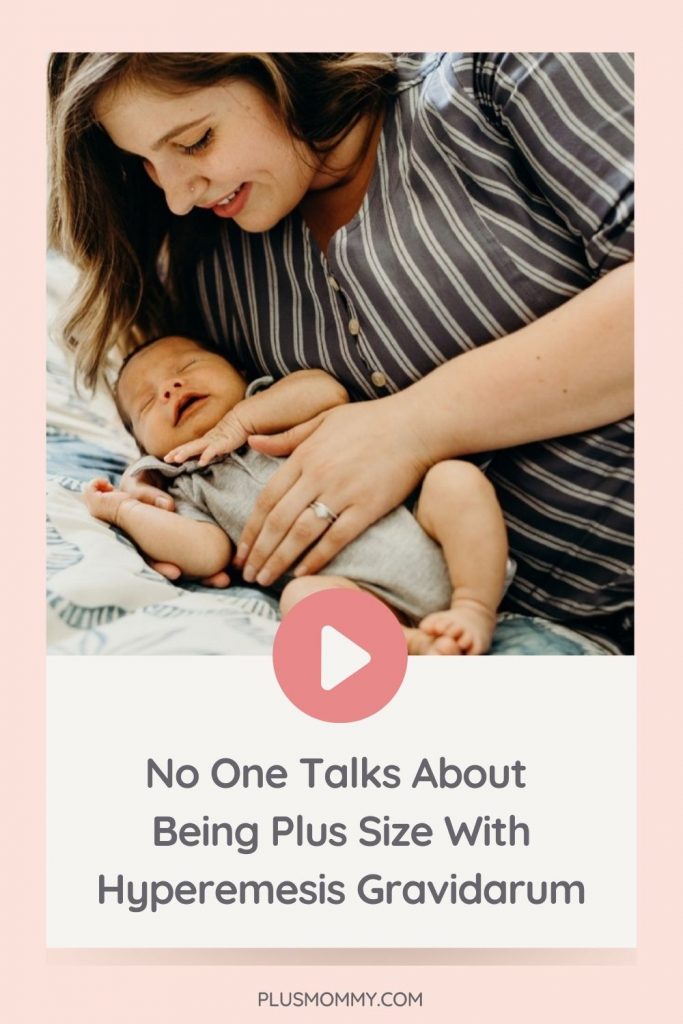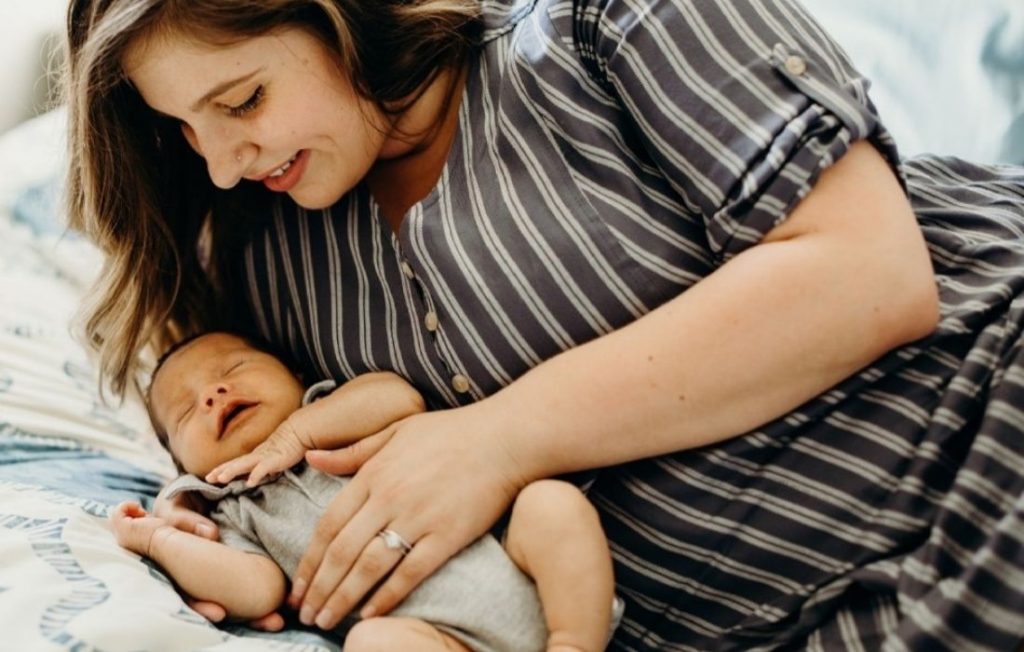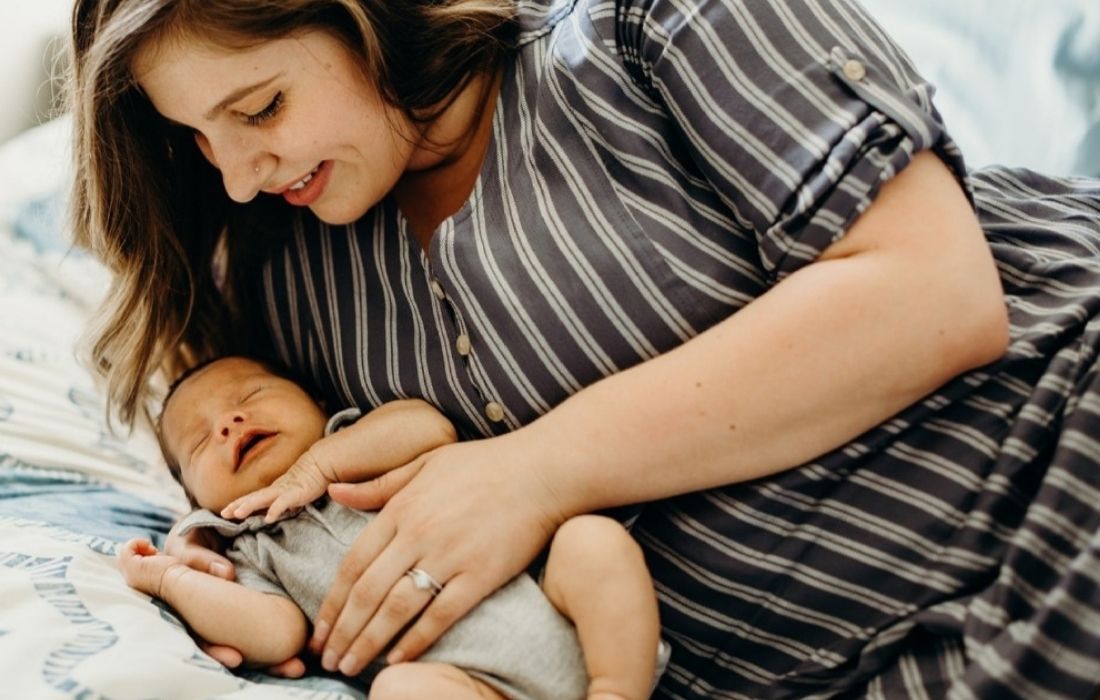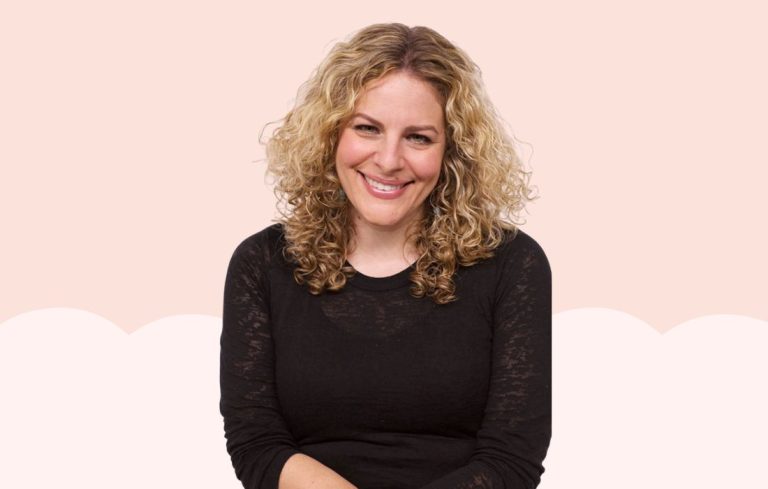No One Talks About Being Plus Size With Hyperemesis Gravidarum
There’s something we need to talk about – being plus size with hyperemesis gravidarum!
Hyperemesis gravidarum (extreme morning sickness) is difficult regardless of size. Yet, when you’re plus size with hyperemesis gravidarum (HG), you’re sometimes not believed or praised for weight loss while you’re suffering.
Disclosure: Plus Size Birth is a participant in the Amazon Services LLC Associates Program, an affiliate advertising program. As an Amazon Associate, I earn from qualifying purchases. Read more about these links in my disclosure policy.

Plus Size With Hyperemesis Gravidarum
Before we talk about how being plus size with hyperemesis gravidarum is different, let’s talk about HG in general.
What is hyperemesis gravidarum?
The definition below is from the National Library of Medicine from the National Institutes of Health.
“Hyperemesis gravidarum is extreme, persistent nausea and vomiting during pregnancy. It can lead to dehydration, weight loss, and electrolyte imbalances. Morning sickness is mild nausea and vomiting that occurs in early pregnancy.”
During the first three months of pregnancy, it’s common to experience morning sickness. Morning sickness consists of feeling nauseous or even vomiting. For many people, it happens in the morning, hence the name. For some, it doesn’t matter the time of day it occurs.
The difference with HG is the severity of the symptoms and that it lasts the entire pregnancy.
What causes hyperemesis gravidarum?
The reason people experience nausea and vomiting during pregnancy isn’t fully known. Some believe it’s due to the quickly rising blood level of the HCG hormone.
The placenta releases the HCG hormone. And yes, that’s the same hormone detected in pregnancy tests!
Always contact your care provider first, but below are two recommended products for relief with hyperemesis gravidarum.


Plus size with hyperemesis gravidarum? Here’s what’s different!
There are weight gain restrictions for people with a high BMI.
When you’re having a plus size pregnancy, your care provider might recommend limiting weight gain during pregnancy.
The Institute of Medicine weight gain recommendations for pregnancy goes off the Body Mass Index (BMI).
BMI 25–29.9 (overweight) = 15–25 lb
BMI of 30+ (obese) = 11–20 lb
Some care providers encourage people with a BMI over 30 to not gain weight and even promote weight loss.
It’s one thing for a provider to talk about nutrition and physical activity in a compassionate manner and weight loss is a bi-product of behavioral changes.
In comparison, what we often hear are stories of care providers telling plus size people they can’t gain weight during pregnancy and people turning to restrictive dieting to lose weight.
There was even a study that showed adverse outcomes for weight loss during pregnancy for people with a high BMI, including increased rates of preterm births and small-for-gestational-age infants
Plus size pregnant people have shared accounts of being fearful of eating before prenatal appointments. They are afraid of being shamed for their size and any weight gain.
All this said, when you combine a push for zero weight gain during pregnancy with a plus size person actively losing weight, you can see why praise for weight loss sometimes replaces concerns for hyperemesis gravidarum.
If you’re losing a significant amount of weight during pregnancy due to extreme morning sickness make sure your care provider isn’t dismissing your concerns. If they are, you can fire your care provider at any time and connect with a size-friendly care provider.
On the flip side, as you’ll hear in Alyssa’s story below, some people cope with extreme morning sickness by eating a lot of carbohydrates. When concerns of sickness are addressed by plus-size people, they can be dismissed if weight gain is occurring.
Connect with a size-friendly care provider!
Plus size people, regardless if they have HG or not, should try to connect with a size-friendly care provider.
A size-friendly care provider is an OB-GYN, Midwife, or Nurse Practioner who practices evidence-based compassionated care.
While they will probably address weight (and even recommended weight gain limits), they do so in a manner that doesn’t make you feel ashamed of your size.
Most importantly, a size-friendly care provider doesn’t dismiss your concerns nor blame everything on your weight.
(Here’s a free guide from Plus Size Birth on how to connect with a size-friendly care provider).
Plus Size With Hyperemesis Gravidarum – Alyssa’s Birth Story
We can learn so much about what it’s like to have a medical condition and not feel supported by hearing people’s stories.
With Alyssa’s first pregnancy, she was diagnosed with severe morning sickness, not HG.
She found the only way to keep her nausea at bay was to eat a lot of carbohydrates.
Alyssa felt like she was constantly eating because she didn’t feel sick if her belly was full, and because of this, she kept gaining weight.
During every prenatal appointment, Alyssa would address her concerns about being so sick. She repeatedly asked what she could do.
Her OB-GYN responded by saying her morning sickness clearly wasn’t a big issue because Alyssa kept gaining weight.
One of the main symposiums of HG is weight loss, but it’s not the only one.
Four months into her pregnancy, Alyssa was so sick she had to close down her bakery – her dream job built from the ground up.
This wasn’t just morning sickness!
Related: Supporting Plus Size Labor And Delivery With Mommy Labor Nurse
Alyssa hired a doula who encouraged her to advocate for herself. Her doula was the first person to say the words “hyperemesis gravidarum.”
Twenty-four weeks into her pregnancy, Alyssa switched care providers.
Unfortunately, this new provider wasn’t the best fit either, and her concerns remained unheard because the number on the scale continued to go up.
Alyssa’s water broke at 36 weeks.
While she wanted an unmedicated birth, she was open to whatever needed to happen, especially with a preterm baby.
After twelve hours, she received pitocin to get labor going, and following that, there was a cascade of interventions.
Following fifteen hours, Alyssa felt the urge to push, but people didn’t believe her. She was right, and following fifteen minutes of pushing, her son was born.
Thankfully he was a healthy baby!
Following giving birth, Alyssa’s nausea went away completely. Due to the treatment she received, Alyssa questioned herself and thought maybe her sickness wasn’t so bad.
It took becoming pregnant again, following a miscarriage, and connecting with two different providers, that finally, she felt validated.
Listen to Alyssa’s full story, and how she took a different approach during her second plus size pregnancy with HG, during episode 145 of the Plus Mommy Podcast below or via your favorite podcast app.

Recording & Show Notes: Plus Mommy Podcast Episode 145
Resources Mentioned On The Show:
- Alyssa recommends the following HG resources; hyperemesis.org (HG Moms on Instagram) and HG support on Reddit.
- Products Alyssa recommends for relief with HG; EmeTerm Relieve Nausea Electrode Stimulator For morning sickness, motion travel sickness, and vomit relief and Liquid I.V. Hydration Multiplier, Electrolyte Powder.
- You can connect with Alyssa on Instagram at @letstryfortwo.
Thank You To Our Sponsor:
Use coupon code PlusMommy to receive 20% off the My Plus Size Pregnancy Guide that covers everything you could want to know about having a plus size pregnancy.







